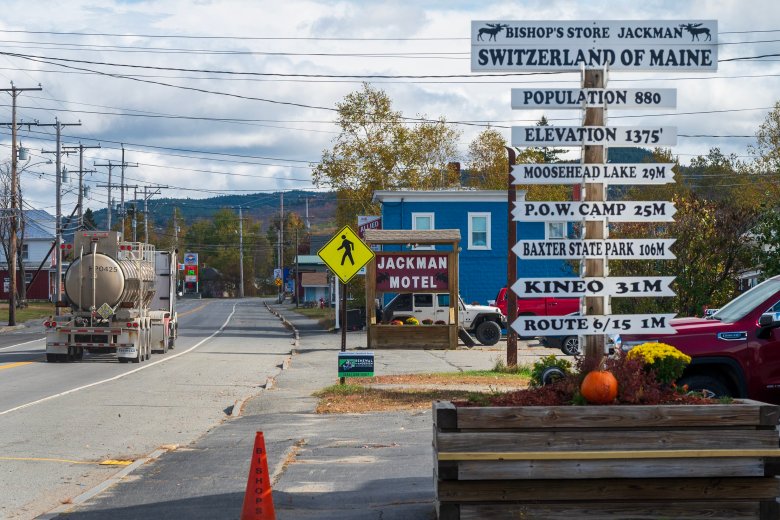
JACKMAN — In a town with two gas stations, there are only so many places to stop.
That means at Bishop’s Store, a gas station and general store on Main Street, manager Mackenzie Redimarker sees familiar faces of Canadian travelers year after year.
They stop in, buying pizza and filling up their tanks, before continuing to coastal destinations three hours south, like Old Orchard Beach, Redimarker said.
But Redimarker, 25, said she has heard from many border agents who stop in that the number of people crossing into the country has been down this summer. She has also heard from people coming back from Old Orchard Beach that there were more cancellations this year than in the past.
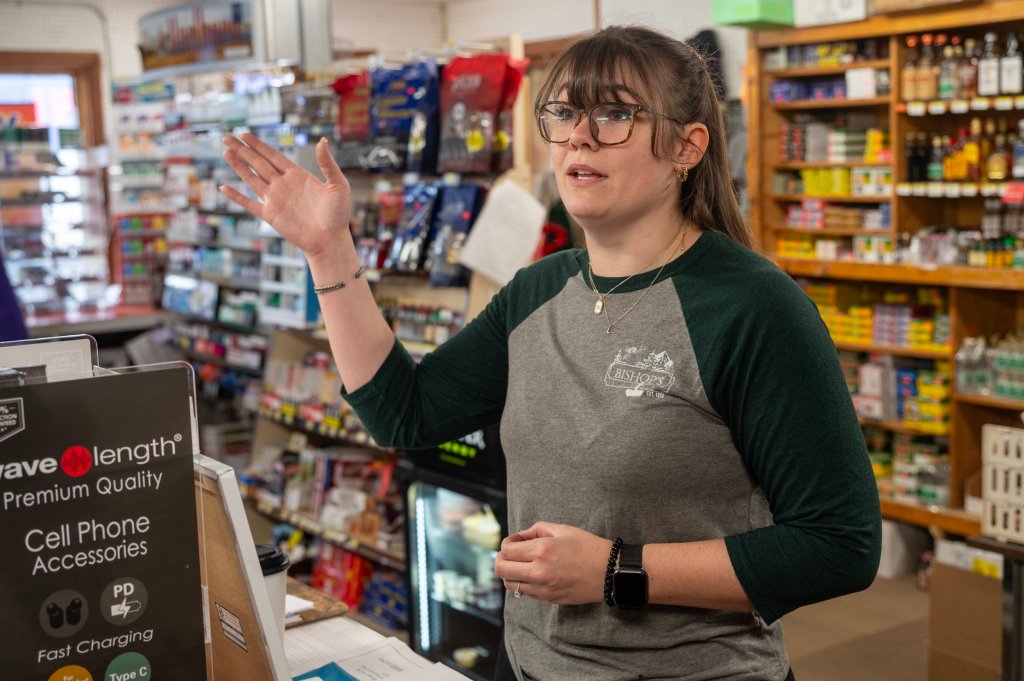
“But I still think the people that were going to come were going to come, regardless,” said Redimarker, standing at the register. “And the people that come every year, pretty much, were going to come.”
Down the road, at Trailside One Stop, store clerk Joshua Warren said Canadians are still coming through Jackman — just not in the same “droves” they used to.
“There’s a lot of people that do want to say, ‘No, it’s exactly the same,’” said Warren, 33, who has lived in Jackman his whole life. “But, no … it doesn’t look like there’s much of a change because you’re dealing with large numbers of people. It’s hard to make a judgment.”

Data from U.S. Customs and Border Protection, in fact, show fewer people this year have been crossing the U.S.-Canada border into Maine through the nearby port of entry in Sandy Bay Township. In town, however, most said they have not felt any significant impact from the dip in traffic.
BORDER CROSSINGS DOWN
In 2025, the overall trend has been the same as prior years: More people cross the border into Maine in the summer months, the busy travel season. But the bump has been smaller.
This year’s drop in traffic has coincided with President Donald Trump’s tariff policy and threats to make Canada the United States’ 51st state. Trump, a Republican, took office in January.
Amid the rhetoric and the escalating trade dispute, Canadian officials were encouraging people to travel domestically this summer, even as a contingent of officials from Maine and nearby states tried to court them.
About 312,000 fewer travelers crossed the border into Maine from June through August compared to the same months in 2024, data from U.S. Customs and Border Protection shows. That represents a drop of about 29%.
At the Jackman port of entry, the CBP data tells a similar story. From June through August, about 57,000 fewer travelers crossed there than in 2024, a decrease of about 33%.
September’s data, which was expected to be published in the middle of October, has not been posted. CBP’s webpage said it would not be updated during the federal government shutdown, which began Oct. 1.
Readily available data from CBP goes back only to 2022, when public health travel restrictions were still in place due to the COVID-19 pandemic, so it is unclear how recent figures compare to pre-pandemic years.
Not all people crossing are tourists. Truck traffic crossing the border into Maine has remained mostly steady in 2025 compared to the three years prior, the CBP data shows.
Since 2022, about 60,000 trucks have been recorded each year crossing into the U.S. at the Jackman port of entry. Some months this year have actually seen a small increase compared to 2024.
CARS, BUSES, TAXIS
Jackman, a town of fewer than 1,000 year-round residents, surrounded by mountains in the Moose River valley about 90 miles north of Skowhegan, is not exactly a border town like other communities in Maine that share a close neighbor on the other side.
The Canadian border is about a 20-minute drive north through a winding stretch of U.S. Route 201 that passes through working timberlands. Cross the border and it is still a half hour or so to reach the next full-service city — Saint Georges, Quebec — and an hour more north from there to Quebec City, the provincial capital.
But in Jackman, the proximity to the border can be felt. U.S. Border Patrol vehicles and Quebec license plates are common sights, even if less frequently seen than the logging trucks that roll through the town day and night.
Border Patrol’s Jackman Station, one of six outposts of the agency’s Houlton Sector that patrols the U.S.-Canada border in Maine, is just a few miles outside town off routes 6 and 16, which runs parallel to a railroad heading toward the Moosehead Lake region 30 miles away. Many agents assigned to the station or the port of entry live in the area and frequent establishments in town, locals said.
Winter, when there is enough snow, is the busiest season for tourism, drawing snowmobilers, mostly American. In the summer months, Canadians are typically passing through as they head to destinations in southern Maine.
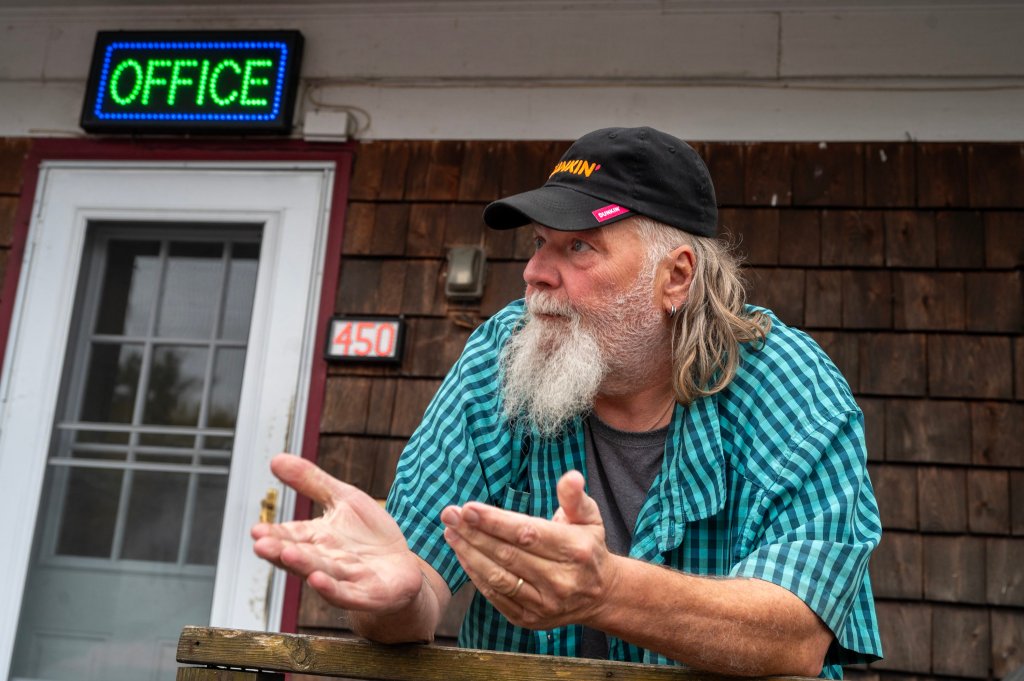
“You see their surfboards and their electric cars and whatnot,” said William Gilboe, standing outside the Jackman Motel on Main Street, one of several properties he owns. “And, in the morning, you’ll see 30, 40 (cars) in a row” bound for locations like Old Orchard Beach.
While Gilboe stood outside his motel for an interview, a tour bus headed south down Main Street, which is U.S. Route 201.
Gilboe, 61, whose long, gray hair was tucked under a Dunkin’ hat he got while in Massachusetts for a medical procedure, said that is a common sight, even this year.
“Once in a while, you see a taxi come down,” Gilboe said with a laugh. “That’s cool. About $190, the last time I checked, from Saint-Georges in Quebec.”
Gilboe, who said he has worked at the Fontaine lumber mill in the neighboring town of Moose River for 42 years, was more inclined to bemoan what he has seen as Jackman’s overall economic decline over his five decades there. A hot real estate market and rising property taxes have forced out the younger generation, he said, and recent high school graduates do not seem interested in mill jobs.
Tourism, both domestic and international, has continued to be a draw for the region.
Tabitha Achey, assistant general manager at the Mountainview Resort, estimated the split between Canadians and Americans staying in the resort’s 10 rooms and five cabins is about 50-50. Travelers come from around the world, too, she said.
“Actually, this has been the best summer that we’ve had in a long time,” Achey said.
KEEP ON TRUCKIN’
Bill Cuddy was having a beer after work at Smokin’ Barrels restaurant, one of the only places open Wednesday afternoon to grab lunch.

The 57-year-old lifelong resident was well aware of the drop in Canadians crossing into the U.S. His brother is a high-ranking official at the nearby port of entry.
But he thinks the biggest economic impact, if anywhere, has been along the coast.
“We didn’t feel it that much,” Cuddy said.
As for truck traffic, Cuddy said it seems the demand for goods has not been affected by higher prices Trump’s tariffs have caused. Logs still go north to Canada; lumber comes back south. Other cargo heads in both directions.
“Everything is not just going to come to a total standstill,” Cuddy said.
Gilboe, the motel owner, had a similar feeling.
“If (people) need the stuff, they’re going to pay the tariffs,” Gilboe said. “That’s all there is to it.”
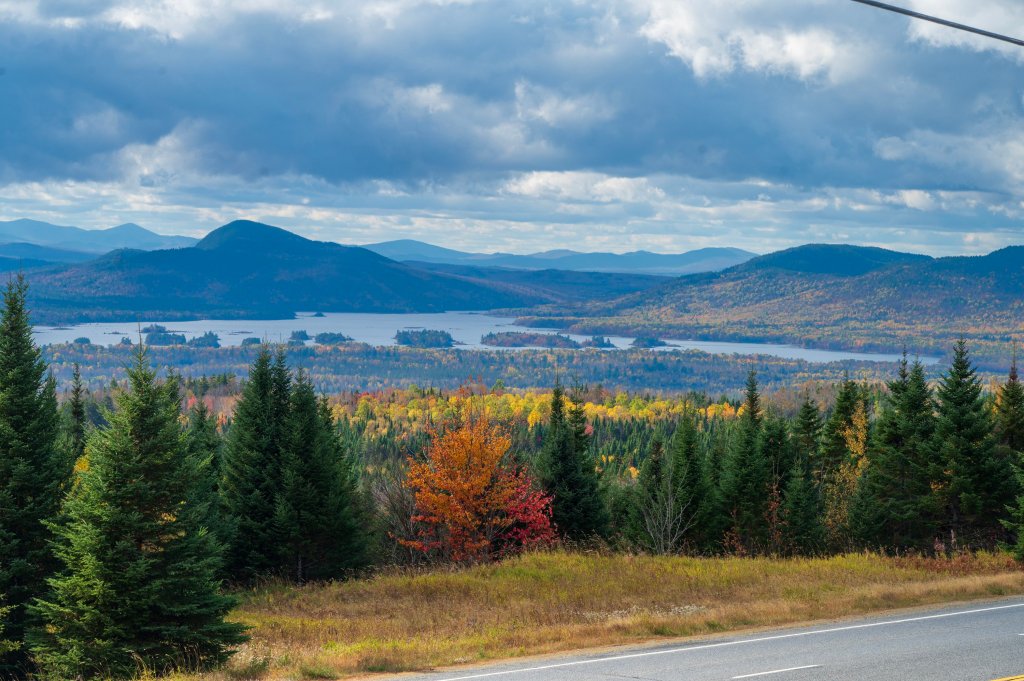

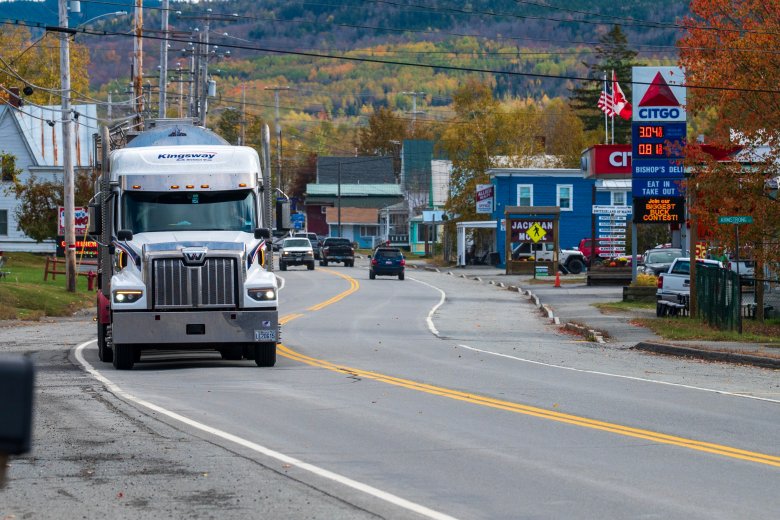
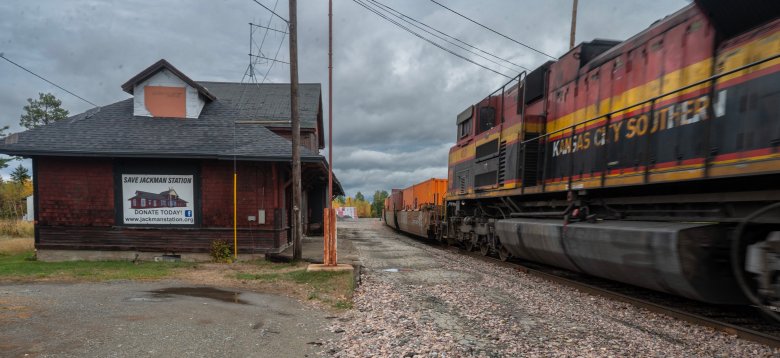

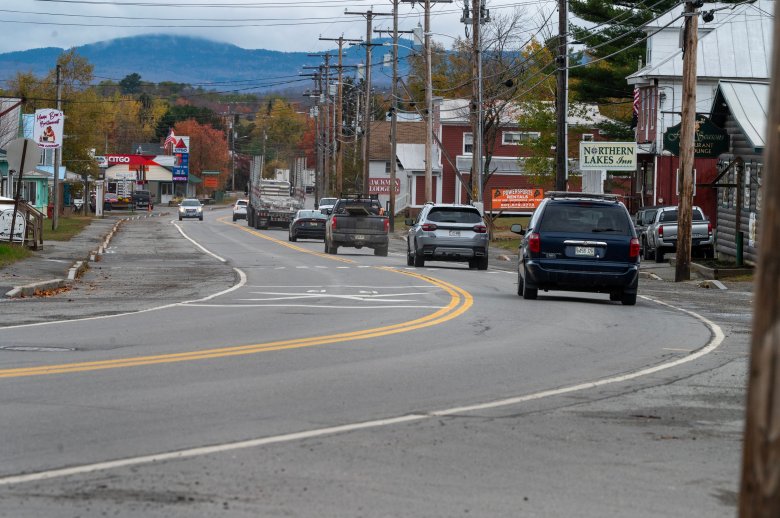
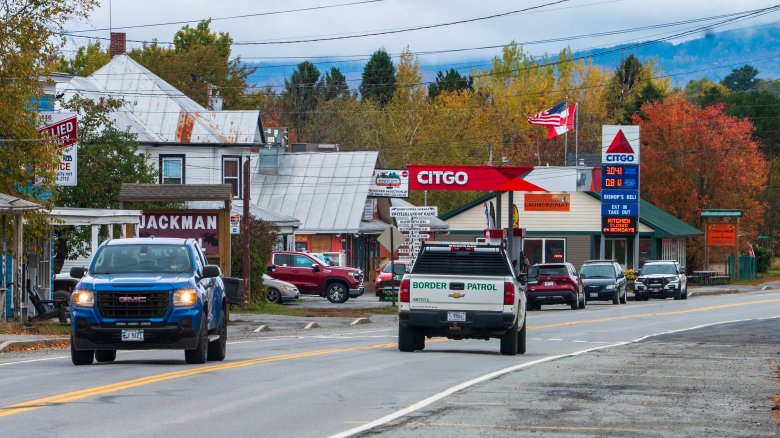
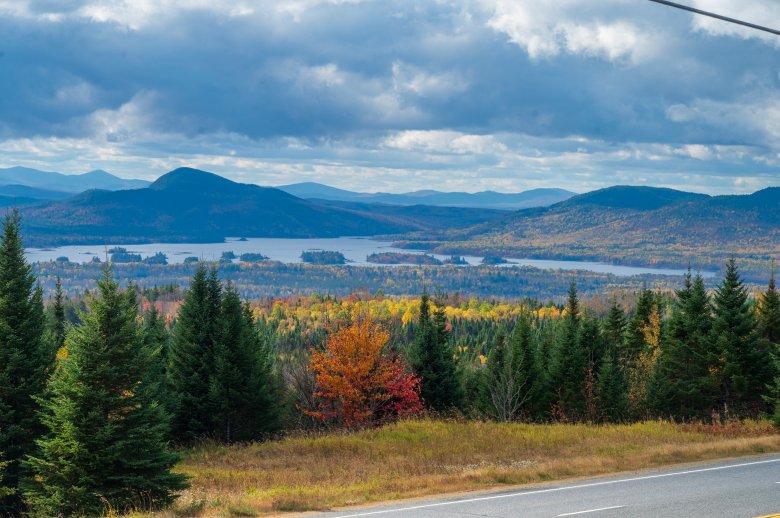
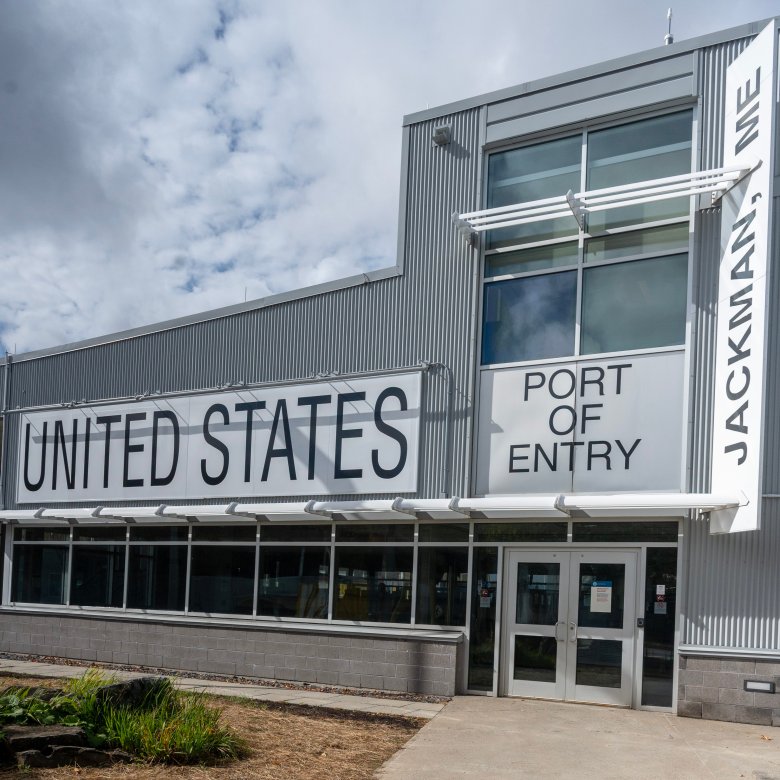
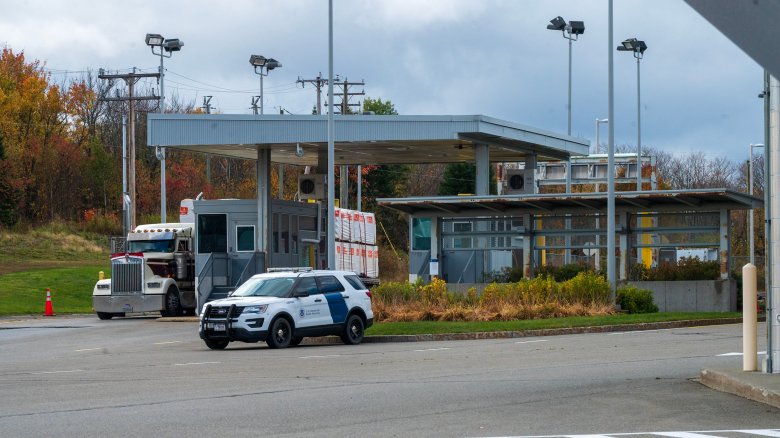
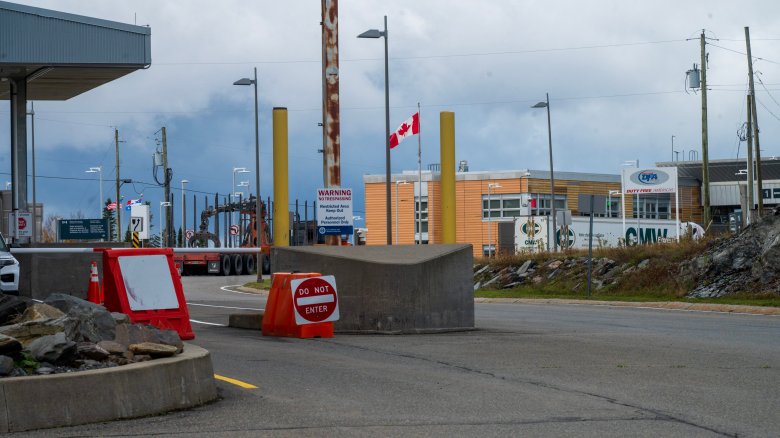
We invite you to add your comments. We encourage a thoughtful exchange of ideas and information on this website. By joining the conversation, you are agreeing to our commenting policy and terms of use. More information is found on our FAQs. You can modify your screen name here.
Comments are managed by our staff during regular business hours Monday through Friday as well as limited hours on Saturday and Sunday. Comments held for moderation outside of those hours may take longer to approve.
Join the Conversation
Please sign into your CentralMaine.com account to participate in conversations below. If you do not have an account, you can register or subscribe. Questions? Please see our FAQs.